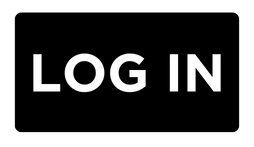National STOL 2025 Season Rules
Updated June 9, 2025
Download a copy: THE RULES
Safety is the most important part of our culture. We want you to be safe. Any competitor that unnecessarily puts other pilots or attendees at risk will be disqualified and asked not to return. High alpha takeoffs or abrupt maneuvers are prohibited. All competitors are responsible for downloading and reading the FULL rules prior to registering for a National STOL event and abiding by them throughout the season. This page is just an outline of CHANGES for the upcoming season.
Important Changes for 2025:
- Flight/Race Suits (NOMEX or similar, flame resistant) are highly recommended for all competitors. Suits may be two piece, but must cover the arms and legs.
- Included in each registration fee is a $20 contribution for the annual points winners. These contributions will be separated by subclass/class and divided amongst the top 3 pilots in each competitive group (1st-50%, 2nd-30%, 3rd-20%).
- Clarification has been added for procedures regarding aborted take offs and loss of directional control on landing.
- Annual Points: 80% (in 2025, 8) of the regular season events will count towards annual points. If you participate in more than 8 regular season events, your top 8 finishes will be counted. Lonestar STOL (Friday) is considered a regular season event. The National Finals for pilots who qualify will be held Saturday of the same weekend and count as separate and DOUBLE points. You do not have to be present at the final event weekend to win; however, points earned at this event will be added to the existing standings.
- NEW CLASSES: New in 2025 are the introduction of a WILDERNESS CLASS (Heavy Experimental) and CUB CLASS (Cub or Cub-like aircraft with limitations on horsepower and modifications). See below for further details.
Competition Classes
Standard Competition classes are defined by airplane make, model, certification type, and weight. Please read below for further details. If you are unsure of what class you fall into, contact National STOL in advance of your registration.
- There must be at least two aircraft in a class for the class to compete.
- Gliders, unmanned aerial vehicles, rotorcraft, powered parachutes, weight-shift, and lighter-than-air craft may not compete.
- National STOL Officials will make all class determinations, which are final.
- Subclasses: Aircraft may be broken up into subclasses within a standard class. A subclass will be defined in the rules at the start of the season. Each subclass will earn annual points on their own (in addition to the main class) for the annual championship. At each event, a subclass award will be presented to the winner only of the subclass.
Exhibition Class-No Prizes or Season Standings
Any FAA certificated Single engine aircraft models as determined by gross weight over and including 5,801 lbs, Twin Engine Aircraft, or other aircraft that are not covered by the classes below.
Rookie Class-No Prizes or Season Standings
The Rookie class is an optional, relaxed class for all aircraft models and types (as long as they fit into a traditional standard class, i.e., no helicopters or twins) for new competitors. Rules in the rookie class are slightly relaxed and additional support is available. However, pilots in this class must practice during the scheduled practice day ahead of the competition, as well as participate in the new competitor safety briefing.
Competitors may continue to participate in the Rookie class until they place first in the class. Rookies cannot compete in any other class concurrently. The Rookie class has no prizes and will not accrue season points.
The goal of the Rookie class is to educate newcomers to the series and encourage them to grow as pilots. While pilots should be experienced aviators in their aircraft type, this will help them learn the National STOL competition format and standards in a fun, low-stress environment. Mentorship from experienced National STOL pilots is available to Rookies before and during the event weekends.
Unlimited Class
- An open class for any pilot for all aircraft models and types (as long as they fit into a traditional standard class, i.e., no helicopters or twins).
- The class is scored in feet (distance) and follows traditional scoring.
- Each aircraft gets at least 3 runs to score the shortest total distance.
- Tires must be marked with a yellow line, such as tape, no less than 3 inches long, perpendicular to the edge of the tire.
The Unlimited Class is the premier class for prizes and awards. Those competing in a purpose-built race aircraft should highly consider competing in the Unlimited Class.
Standard Classes
Touring Class
- Cessna C-180, C-182, C-185, C-205, C-206, C-210, Maule M-6, M-7, M-9
- If not listed: FAA Certified ASEL models as determined by gross weight from 2,301 lbs to 5,800 lbs
Wilderness Class
- Murphy Moose, Murphy Rebel, Backcountry BOSS, Bearhawk 4, Bearhawk 5
- If not listed: other FAA certificated ASEL as Experimental with a gross weight from 2,301 lbs to 5,800 lbs
Backcountry Class
- Citabria; Huskies; Scout; Stinson 105, Stinson 108-2; T-Craft (over 1,320 lbs); Cessna 170, C-172, C-175, C-177, C-150, C-152, Maule M-4, M-5
- If not listed: other FAA certified ASEL models as determined by gross weight from 1,321 to 2,300 lbs.
Adventure Class
- Bearhawk Patrol; Carbon Cub EX, Carbon Cub FX; Dakota Super 18; Legend (EAB); Savage Outback Shock; Super Cruiser; PA-12, 14, 18, and PA-22, Top Cub; Tern X Cub; Zenith 750SD
- If not listed: other FAA certificated ASEL as Experimental with a gross weight of 1,321 lbs. to 2,300 lbs.
Cub Class
Cub or Cub-like aircraft models with naturally aspirated engines rated at 180 horsepower or less, without Nitrous-Oxide N2O or similar injection. Aircraft must be equipped with a stock wing. VGs and/or Wing cuffs are allowed. No modified lift devices, slats, spoiler, drag devices, or wing extensions.
Examples of aircraft that qualify for this class include: PA-12, PA-14, PA-18, PA-22, CSport Cub S2, Carbon Cub SS.
Aircraft that do not meet the engine and airframe specification rules of this class would revert to their standard class (Sport or Adventure), by weight.
Vintage Cub Subclass
Cub Class aircraft 100 hp and under without flaps or pilot-operated lifting devices. – i.e. PA-11, PA-12, J3, AL-3, Aeronca Champ
Sport Class
- CSport Cub S2; Rans S-7LS; Super Legend; T-Craft (1,320 lbs); Bearhawk LSA; Carbon Cub SS; Carbon Cub UL; Dakota Super 18-LT; Legend (ELSA); Rans (ELSA); Just Aircraft Highlander & SuperSTOL
- If not listed: other FAA certificated ASEL as determined by a maximum gross weight up to and including 1,320 lbs.
Download a copy: THE RULES
Questions? Contact info@nationalstol.com


